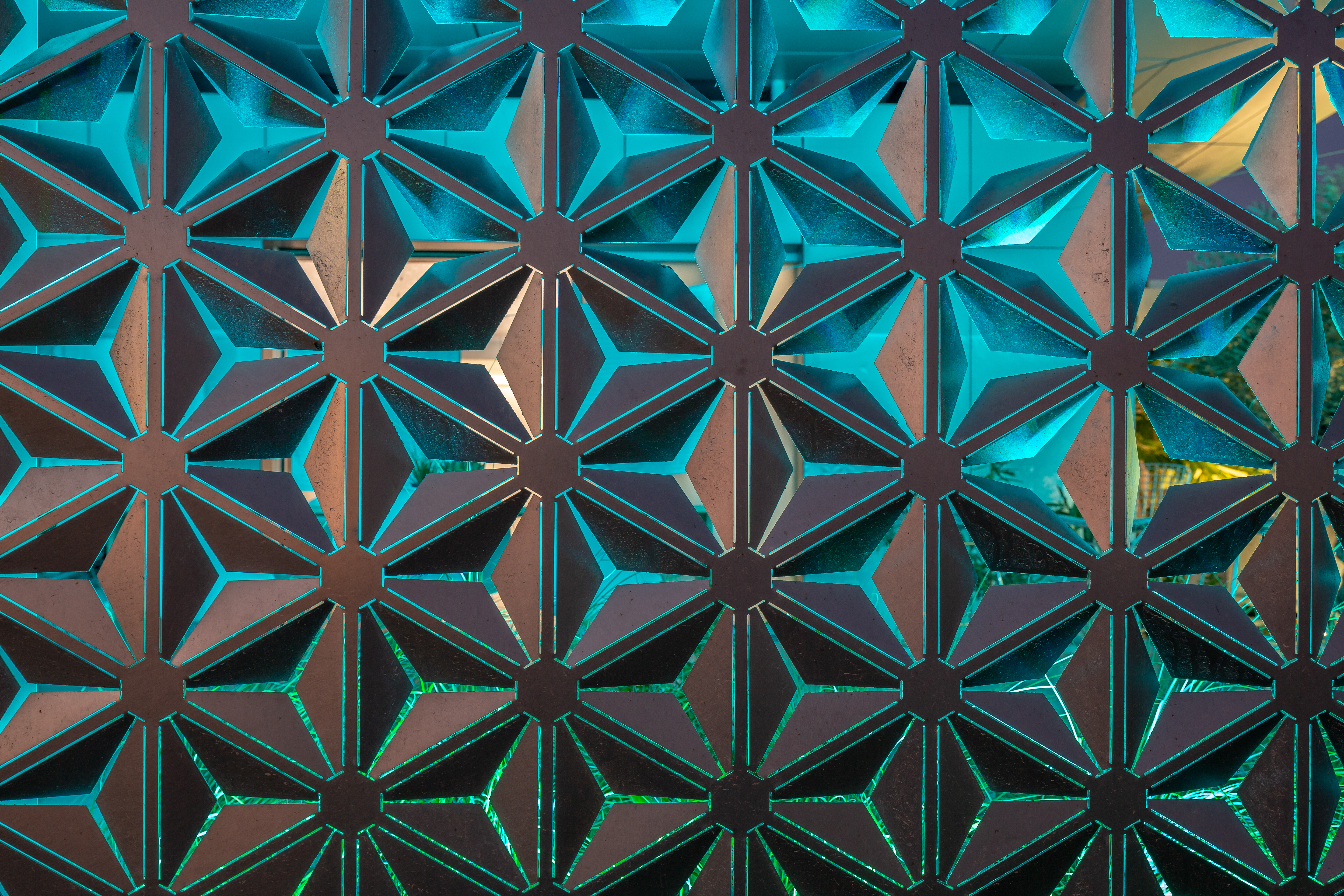Virginia Tech's state-of-the-art smart home demonstrates the impact of transdisciplinary collaboration
By Erica Corder and Travis Williams
In the deserts of Dubai, Virginia Tech’s FutureHAUS rose from the ashes to climb to the pinnacle of design for the world’s solar homes. / The task wasn’t easy, but the team succeeded by building on the foundation of the university’s vision for the future, Beyond Boundaries. / The project unites students and faculty from various colleges and disciplines in building a net-zero energy home incorporating new methods of prefabrication, technology, and sustainability.
“We have the most interdisciplinary team that we’ve ever had around any research project, and that’s what it takes. That’s the secret,” said Joe Wheeler, architecture professor and lead faculty of FutureHAUS Dubai.
In November 2018, the FutureHAUS Dubai team earned first place in the Solar Decathlon Middle East, a competition to accelerate research on building sustainable, grid-connected solar homes launched by the U.S. Department of Energy and the United Arab Emirates’ Dubai Electricity & Water Authority. The lone American entry, the Hokie-built, 900-square-foot home outranked 14 teams selected from a pool of 60 entrants.
The win is the culmination of nearly two decades of research, two years of accelerated development after the previous iteration was destroyed in a 2017 fire, and more than a month spent in a desert near Dubai erecting the structure.

Moving FutureHAUS Dubai from concept to reality was a university-wide effort. Virginia Tech’s College of Architecture and Urban Studies, College of Engineering, Myers-Lawson School of Construction, Pamplin College of Business, College of Liberal Arts and Human Sciences, and the College of Science, as well as various centers and labs across campus, contributed to the success of the project.
“I have never experienced this much interdisciplinary knowledge going back and forth every single day to get something done,” said Michelle Le, who was a student architectural design leader for the team.
The FutureHAUS Dubai team was tasked with creating a home that serves the needs of an aging population, addresses growing environmental concerns, and integrates secure smart systems for an increasingly connected but security-concerned population.
The house was equipped with 67 devices, including touch-screen control panels, automatic sliding doors, a smart mirror to help users find their clothes, and a movable wall to adjust floor plans using what the team calls “flex space.”
The cutting-edge innovations extended to the home’s garden, but rather than implementing even more technology, the team leaned on its landscape architecture students for a different approach. To adhere to the competition’s strict water-usage regulations, students incorporated native plants, including four 35-year-old olive trees, that could withstand the intensity of the desert heat.

The current rendition of FutureHAUS grew from the successes of a previous generation of structures. The first FutureHAUS, unveiled room by room over five years in international trade shows, burned in a fire in February 2017. One of FutureHAUS’ predecessors, LumenHAUS, won the international Solar Decathlon Competition in Madrid, Spain, in 2010 and is currently on display behind Cowgill Hall. For FutureHAUS Dubai, researchers merged the best features of both.
The team’s victory in Dubai not only validates their vision for the home of the future, but also their vision for a new way to tackle the housing needs of an increasingly crowded world with finite resources.
“We have always believed in this concept, but now the world believes in this concept as well,” said Laurie Booth, a fourth-year architecture student and a student team lead of FutureHAUS Dubai. “[The concepts proposed by FutureHAUS], now that we’ve built it, seem very real, seem very possible, which excites me the most: that maybe someday, thousands of people could live in a house like this.”
Traditionally, building a home requires an on-site construction process, which is subject to uncontrollable factors, such as weather. FutureHAUS, however, was built entirely in a lab as separate but compatible “cartridges” equipped with the walls, floors, ceiling, wiring, plumbing, and finishes.
The all-in-one customizable cartridges can be shipped to a location and easily assembled with a plug-and-play approach.
Joe Wheeler, Laurie Booth, and Bobby Vance.

“Our vision for this house will eventually be to create it on a mass production scale. Just like Henry Ford came and revolutionized the automobile industry by creating assembly lines and mass production techniques, we’re hoping that something similar can happen with this house,” said Rachel Carie, an industrial and systems engineering graduate.
If implemented, the cartridge method could also reap dividends for the homebuilding industry. Homes could be built in mass quantities for lower costs and with greater energy efficiency. Tradespeople such as inspectors, electricians, and plumbers could work at a single location, converging disciplines constantly throughout the homebuilding process and yielding a better product.
That drive for innovation has led several companies — including such top sponsors as Dupont, Dominion Energy, and Kohler — to partner with Virginia Tech’s team, using the house as a test bed for future projects.
With the competition behind them, the team has high hopes for what lies ahead. They’ve already begun researching methods to scale up production, and a new team of industrial and systems engineering students is exploring a facility concept for manufacturing the houses.
For the immediate future though, members say they’re happy to spend a little time reflecting on what they were able to accomplish together.

-
Article Item
-
Article Item
-
Article Item



